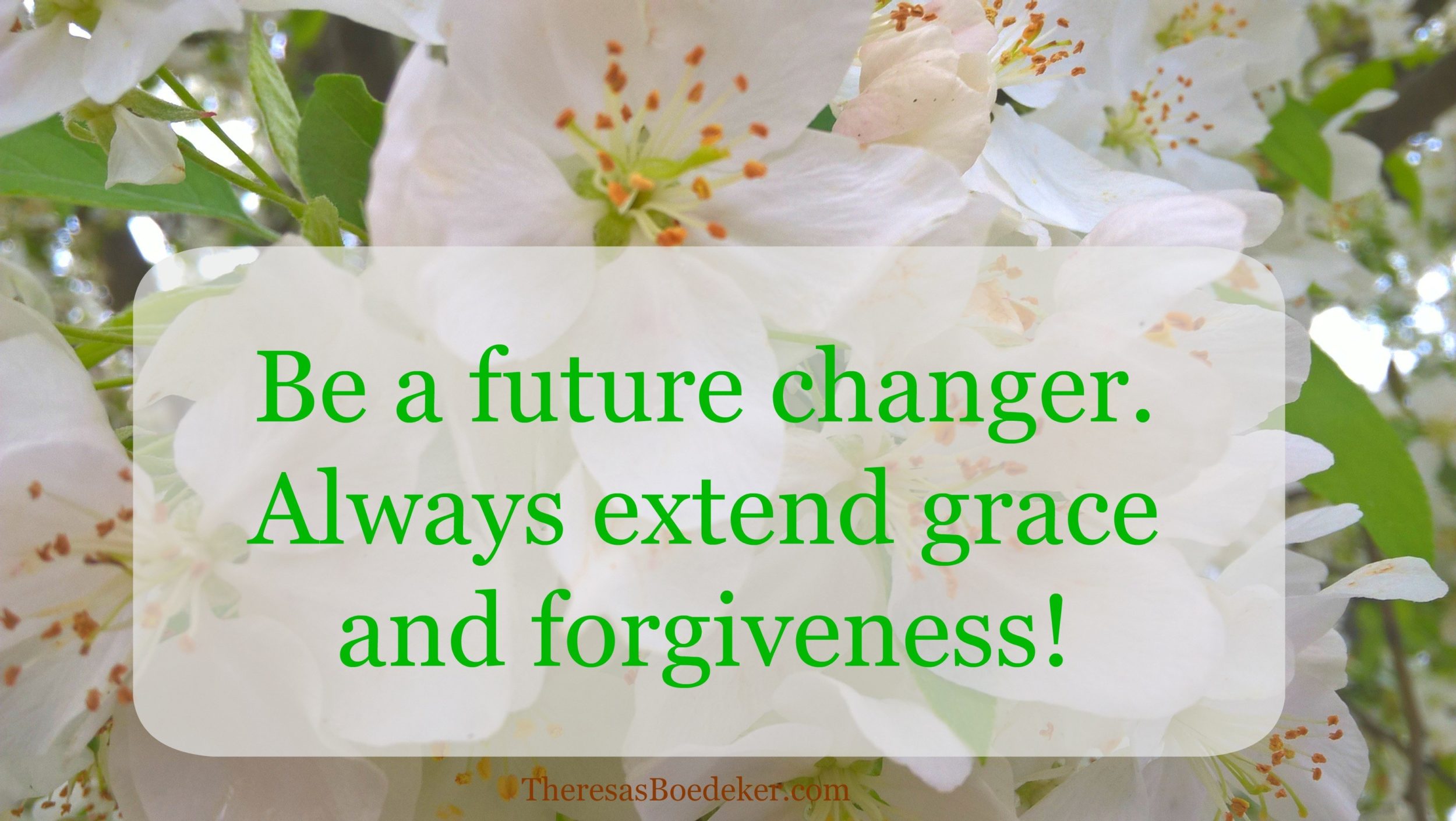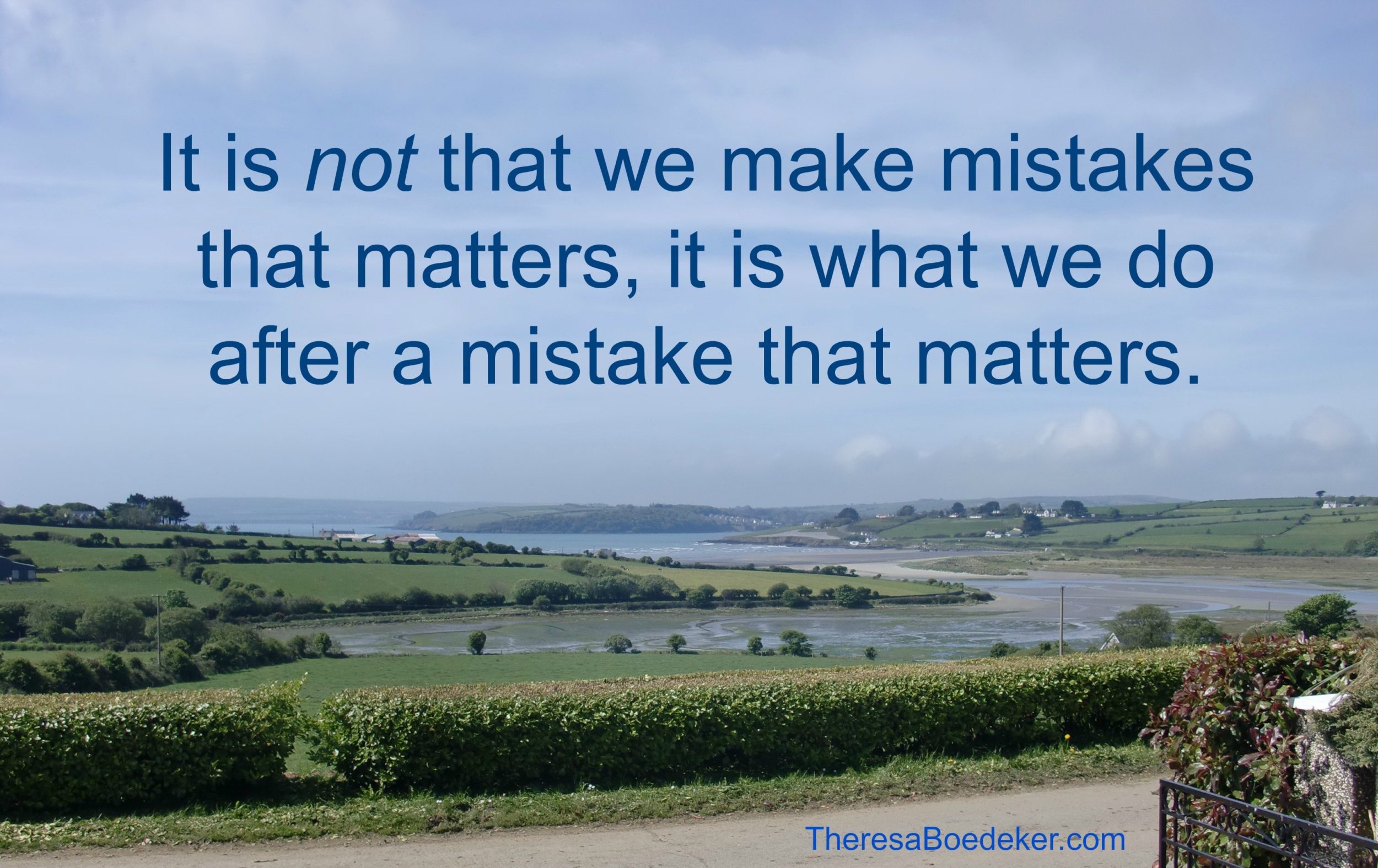


 It was a sunny fall day. We had just left my mother’s home and were driving down the road with my step-father. It seemed the beginning of an adventure as we were chatting and laughing about leaving on time, the sunny day, and our afternoon festivities.
It was a sunny fall day. We had just left my mother’s home and were driving down the road with my step-father. It seemed the beginning of an adventure as we were chatting and laughing about leaving on time, the sunny day, and our afternoon festivities.
I glanced at my husband, and admired his good looks. I peeked at our five-year-old daughter behind my seat. I glanced down the road and saw a dump truck coming up the hill. I felt giddy with joy in the moment.
The next thing I remember is a school bus starting to turn into our lane. She is going to stop, I think. She didn’t. Suddenly I was hurtling through the air, the G-forces unbearable. Slam. Bam. Then Slam again. It felt like I was jello being shot from a cannon and hitting a brick wall, only not once, but several times. Eventually I passed out.
Screams, moaning, and crying assaulted my ears. Calling me to wakefulness. I fought to not wake up, but eventually I did. The smell of burnt rubber, spilled oil, and hot metal hit my nose. I eventually realized part of the groaning was me. The moaning was my step-father in the back seat, until he passed out and was quiet. The crying was my daughter, until she was removed from the car.
I tried to move. Nothing. I tried one hand. An arm. A leg. My neck. Nothing. I darted my eyes to my husband. He was slumped against the steering wheel with blood dripping out his nose and mouth.
Eventually the ambulance came and we were all taken to the hospital, where we would stay for two weeks, until sent home and confined for months to our home, trying to heal from our broken bones, the trauma, the injuries.
A few days after the accident, I looked up from my hospital bed and there was a lady carrying a bouquet of flowers. Behind her were two more people. She entered the room and sat down. She said she was the driver of the bus who had hit us. And then she started crying and saying she was so sorry. That she had been following the dump truck to closely and had turned without waiting to see if someone was coming (the dump truck had blocked us from her sight for a few seconds).
She said she had been praying for us and calling the hospital daily to see how we were doing.
I lay there with my back broken in two areas, broken ribs, and knee, not knowing if my husband, who was ten floors below me in a coma in critical care, would even live or if he would be a vegetable like his doctor said he might be.

 Some mistakes are easy to laugh at. To poo-poo. To say, “No problem,” to. To keep calm and continue straight ahead from.
Some mistakes are easy to laugh at. To poo-poo. To say, “No problem,” to. To keep calm and continue straight ahead from.
Others take you for a loop. Leave you speechless. Upend your life for a day, month, or years. The consequences reverberating faster than a bee’s wings.
What do we do when we are faced with a really big mistake? A mistake that affects us or our loved ones in some manner? A mistake that require money or time to fix? A mistake that may not even be able to be fixed?
I knew her hitting us was not deliberate. It was an accident. A mistake. A hurrying-to-school-to-pick-up-the-kids-and-be-on-time mistake.
How many time had I speed a little to get somewhere on time? How many times had I been driving and not giving it my full attention?
I remember the dark night I was driving home as a teen and I started to turn onto the road and suddenly stopped when I saw a headlight through the rain. If I hadn’t stopped, I would have most likely hit the motorcycle.
Not on purpose. It would have been an accident. A mistake. A miss-judgement.
Big mistakes happen once in a while. They just do.
The cat sitter accidently closes the door to the room with the cat litter and you come home to cat messes on the couch, bed, and floor.
The neighborhood boys lop a homerun through your two-story window that looks out over the cul-de-sac.
Your child forgets to turn off the back sprinkler, and you don’t discover the mistake until three days later.
Your mate forgets to put the chickens in their little safe house for the night and next morning you find dead hens on the lawn.
A family member downloads something from the internet that has a hidden virus, which wipes out your computer.
A doctor makes a mistake during your operation.
A friend backs into the side of your new car.
A child runs in to use the bathroom right before a two-week trip. You come back to find the whole bottom story of your house swimming in water.
All of these mistakes are accidental, and yet they all carry consequences. They are big mistakes with big consequences. What to do?

 Remember it is not the mistake itself that so much matters, it is how we react to the mistake.
Remember it is not the mistake itself that so much matters, it is how we react to the mistake.
Luckily big mistakes don’t happen that often.
But when they do we have a choice to make.
We can try to extract what we deem to be a fair payment from the person. This is not always possible. Because what is fair payment? Are you going to make your child pay for all the water damage your house sustained during your vacation?
We can try to undo the mistake. Sometimes this is possible. New hens can be bought, but they will never be the same hens, even if you name them Omelet, Brownie, and Egg-Nog. A new window can be installed, but not without some inconvenience, moving of furniture, and taking time out of your day.
We can get angry and then harbor bitterness and blame towards the other person for making the mistake. Be forewarned, though, this will never undo the mistake, remove the mistake, or take away the consequences of the mistake.
Choosing the last option also harms our self in the process, more than we will ever harm the other person. Anger and blame will eat away our joy. Unforgiveness becomes a heavy burden to drag through life, erects barriers, and it clouds our perceptions. Unforgiveness keeps us awake at night and turns our stomach. It makes us miserable, not the person we are blaming.
We can also choose to be gracious and treat the other person the way we would want to be treated.
This is a win-win situation for all. The other person is already feeling guilty enough and doesn’t need to eat twenty-two more scoops of shame and blame.
When we offer grace and forgiveness, we are saying relationships and people are more important than events and things. We are giving them a gift more precious than gold. We are modeling Christ.
The disciples were told to forgive 70 times 7.
We don’t deserve this much forgiveness, but we have been given so much more than this by our Savior. We have enough to pass onto others.
No matter the mistake. No matter the consequence, the only response that will benefit you and the other person is grace and forgiveness.
Put yourself in the other person’s shoes. What would you want? What would set you free?

 I listened to the bus driver. Her words coming through sobs. Saw her hunched shoulders, her face that had not had a good night sleep. I saw the turmoil across her forehead, in her clenched hands. I heard her say how she had tried to visit my husband, but been denied access, and could I please tell him that she was sorry.
I listened to the bus driver. Her words coming through sobs. Saw her hunched shoulders, her face that had not had a good night sleep. I saw the turmoil across her forehead, in her clenched hands. I heard her say how she had tried to visit my husband, but been denied access, and could I please tell him that she was sorry.
No, it wasn’t fair that she was sitting in the chair, her husband next to her kneading her shoulder and passing her Kleenex when I was confined to a bed unable to sit up or get out. It wasn’t fair that her husband was next to her and mine was lying 10 floors below fighting for his life. It definitely wasn’t fair.
But as my mother was fond of pointing out when we children complained, “Life isn’t fair. Never was. Never will be.”
But for the grace of God, there goes I.
There was only one thing to do.
I held out my hand. She took my shaking hand, and I nodded.
Extend grace and forgiveness. Always.
You will never regret it.
We have enough problems and battles in this world without hauling around our unforgiveness.
Bernard Meltzner once said, “When you forgive, you in no way change the past – but you sure do change the future.”
Extend grace and forgiveness. Always.
Be a future changer.

P.S. We all eventually recovered from the accident, though that is a different story. And from that mistake, blessings developed. Because God is in the business of turning mistakes into blessings in disguise.
Join the Discussion: What are some big mistakes you have had to deal with?
Turn Your Children’s Mistakes into Learning Opportunities
Learn 10 steps to help you
Yes! I want the FREE RESOURCE to help guide me in creating
independent children that learn from their mistakes.
Other posts in this series:
Yay for Mistakes! Part 1 | What Do You Do?
Yay for Mistakes! Part 2 | How to Respond
Yay for Mistakes! Part 3 | Responding to Our Children’s Mistakes
Yay for Mistakes! Part 4 | How to Let Our Children Make Mistakes and Fail
Yay for Mistakes! Part 5 | Quieting a Myth of Mistakes
Yay for Mistakes! Part 6 | Mistaking Our Worth
Yay for Mistakes! Part 7 | Mistaking Paradise
Yay for Mistakes! Part 8 | Some Mistakes Are Really Blessings in Disguise
Yay for Mistakes! Part 89; Dealing with Real Big Mistakes
Yay for Mistakes! Part 10; Letting Go to Make Mistakes
Yay for Mistakes! Part 11; Dealing with Critical Words From Mistakes
Accompanying this series, Life as it Comes, a story podcast, takes a humorous look at making mistakes in episode 31, “Have You Pulled a Theresa?” and Episode 33, True Green and Garage Chaos
Remember:

Linking up at Jennifer Dukes Lee (#tellhisstory); and Holley Gerth (#coffeeforyourheart), Lori Schumaker (#Moments of Hope). A Wise Woman Builds her Home, Pat and Candy, Messy Marriage, Arabah Joy (#Grace & Truth), Missional Women, and Lili Dunbar (#FaithOnFire).
- How Knowing Your Husband Can Impact Him for Good - March 24, 2022
- How to Stop Focusing on What’s Wrong with You - March 9, 2022
- Is God Really Good All the Time? - February 24, 2022
It is amazing how God can turn the bad into the good! Praise God for that!
So True, Sherry. With Him on our side we really have nothing to fear because somehow it will work out in the end to our benefit, even if it doesn’t seem so at the time.
What an incredible story! It had me sobbing. God bless this writer! She does fabulous work. ( I also admire her for her forgiveness. Guilt is the worst of all emotions to carry. The bus driver also was suffering, in some ways she was suffering the most of all. Again, God bless this writer.)
Colleen, Thanks for your perspective! I am sure the bus driver was suffering in many ways more than I was. Emotional suffering can be so heavy. Thanks, for your encouragement, sweet sister.
“When we offer grace and forgiveness, we are saying relationships and people are more important than events and things.” This is so true, but I know it can be very hard sometimes. What a horrible accident and time of recovery that must have been. So thankful you all recovered and that you found the grace at even that difficult time to offer forgiveness. That must have really meant a lot to that bus driver. I pray that God will help us all to be more willing to forgive and extend grace even when hard.
Blessings to you! Thanks for visiting my blog earlier. I’m so glad I came by to read your story.
So true, Gayl. Offering grace and forgiveness can be so hard. And it can seem so unfair. And it can be such a daily occurrence or many time occurrence. And what is easy for one person to forgive can be so much harder for the next person. It is hard to move forward, though, if we don’t forgive. Yes, let’s pray that we will be a people who extend grace and forgiveness. Thanks for visiting.
I am proud of you, Mom, and the lessons you have taught me through modeling of grace and forgiveness to others. Here is just one of the times you modeled it well. –Ashley
Thanks sweet daughter. You have also inspired me so much.
Wow Theresa,
What a hard story. And such a solid demonstration of forgiveness and understanding accidents as accidents. Thank you for sharing this and praise the Lord He makes good out of the horrible!
Thanks Bethany. It’s a comfort to know we serve a God who does make “good out of the horrible.” Not immediately and magically, but he does in a way that benefits us and others.
What a tough situation you went through, but I can definitely say that I was touched by your story. I love that you pointed out that it’s how we deal with the mistakes that is the point. How we react to the mistakes is so important. That we still show love to others when they make mistakes is so important as well.
It was a tough situation. I don’t want to minimize that, because in many ways we are all still to this day dealing with effects from that accident. But I also know that holding onto anger would have made things so much harder for us all. I know that I want others to show me love when I make mistakes. Thanks for your comments and stopping by, Rosanna. Blessings.